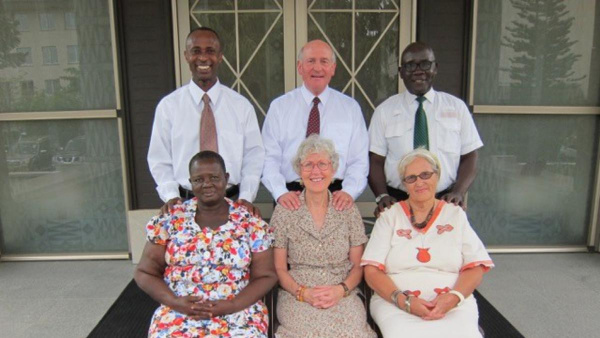Question
Gramps,
Who extends the call to serve as a counselor in a temple presidency? And, are multiple candidates interviewed as they are for the calling of a stake president?
Cherrie
Answer
Cherrie,
In The Church of Jesus Christ of Latter-day Saints, the call to serve as a counselor in a temple presidency is a significant and sacred responsibility. This role carries spiritual weight and authority, as it directly impacts the sacred operations of the temple, a central place of worship and covenant-making for members of the Church. Understanding who extends these calls, the authority involved, and the implications of these appointments reveals much about the Church’s governance and the divine principles that guide its leadership.
The authority to extend calls within the Church is fundamentally rooted in the priesthood, which is the power and authority to act in God’s name. The President of the Church holds the ultimate authority in this matter and is responsible for organizing the Church and its leaders, including temple presidents. When a new temple president is appointed, he is entrusted with the sacred responsibility of selecting his counselors—individuals who will assist him in overseeing the temple’s operations and functions.
This authority structure is not merely hierarchical; it is also participatory. Local leaders, such as stake presidents, play a crucial role in extending calls within their areas. They ensure that the individuals called are not only qualified but also spiritually prepared to serve. This governance model highlights the collaborative nature of church leadership, where the input and sustaining votes of the members are essential for maintaining accountability and spiritual integrity.
Historically, the process of extending calls has been documented in the records of the First Presidency, emphasizing the importance of spiritual readiness and adherence to priesthood authority.
When a new temple president is called, the selection of counselors is a critical step in establishing effective temple governance. Counselors are chosen based on several factors, including their experience, qualifications, and spiritual readiness to handle the sacred duties associated with temple service. This selection process is not arbitrary; it is guided by prayer and revelation, ensuring that those chosen align with the spiritual and operational needs of the temple.
Counselors assist the temple president in various responsibilities, including overseeing temple ordinances, managing temple staff, and ensuring that the temple remains a sacred space for worship and reflection. Their roles are integral to the smooth functioning of the temple and the spiritual upliftment of its patrons. The collaborative dynamic between the temple president and his counselors reflects the Church’s emphasis on teamwork and unity in spiritual leadership, allowing for a more effective ministry to the members and patrons of the temple.
During significant transitions, such as the passing of a temple president, the Quorum of the Twelve Apostles plays a vital role in the reorganization of temple leadership. The Apostles, who serve as special witnesses of Jesus Christ, are tasked with ensuring that the leadership of the Church is in alignment with divine will and revelation.
The involvement of the Quorum of the Twelve Apostles ensures that the processes of calling and sustaining leaders are conducted with prayerful consideration and spiritual guidance, maintaining the integrity of the Church’s governance.
Local leaders, such as stake presidents, play an essential role in the governance of the Church and the extension of calls to serve. Stake presidents have the authority to call counselors in their respective areas, ensuring that these calls align with Church policies and are sustained by the members of their stakes. This participatory governance model is a hallmark of The Church of Jesus Christ of Latter-day Saints, allowing for local input and sustaining votes, which are crucial for maintaining order and accountability.
The role of local leaders emphasizes the importance of community in the Church. Members are encouraged to be involved in the decision-making processes that affect their worship and church experience. This model not only strengthens local congregations but also fosters a sense of belonging and connection among members, reinforcing the idea that leadership is a shared responsibility.
The process of extending calls to serve as counselors in a temple presidency within The Church of Jesus Christ of Latter-day Saints is a sacred and structured endeavor. It involves a combination of priesthood authority, spiritual readiness, and community participation. The temple president, with the guidance of the Quorum of the Twelve Apostles and local leaders, is responsible for selecting counselors who will assist in the vital operations of the temple.
As members of the Church, it is important to recognize the divine principles that underlie these processes. Each call to serve is an opportunity to contribute to the spiritual upliftment of individuals and families who seek to draw closer to God. By understanding the authority and structure behind these calls, members can better appreciate the sacred nature of temple service and the importance of sustaining their leaders through prayer and active participation.
As you ponder your own role within the Church and the opportunities to serve, consider how you might support those called to lead and uplift others in their spiritual journeys. In doing so, we honor the sacred callings extended within The Church of Jesus Christ of Latter-day Saints and contribute to the ongoing work of salvation in our communities.
Gramps







